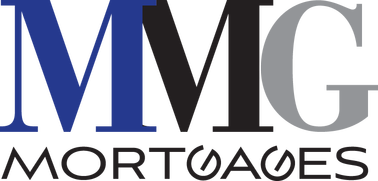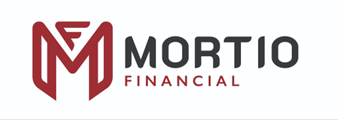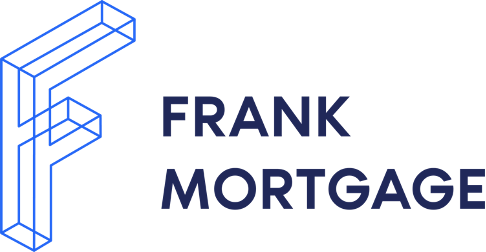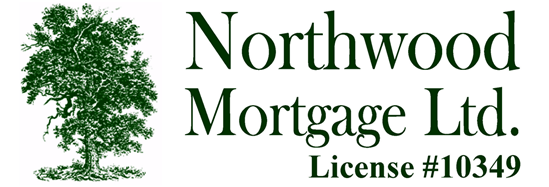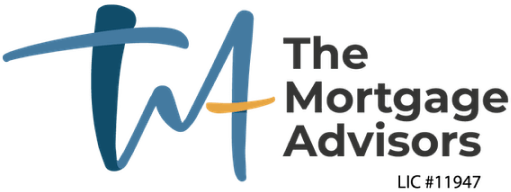Current Ottawa Mortgage Rates
Get the lowest mortgage rate today.
Today's Best Mortgage Rates in Ottawa, Ontario
Evaluate Ottawa’s best mortgage rates in one place. You can compare the most current mortgage rates and monthly payments from 175+ banks and lenders across Ontario.
Rates are based on an average mortgage of $500,000 and subject to change based on filter criteria.
| Lender
|
Insured
|
Insurable
|
Uninsured
|
|---|---|---|---|
|
MMG Mortgages
|
3.99%
$2,627.39 / month
|
4.19%
$2,681.85 / month
|
4.14%
$2,668.19 / month
|
|
Mortio Financial Corp
|
3.99%
$2,627.39 / month
|
4.24%
$2,695.56 / month
|
4.14%
$2,668.19 / month
|
|
Frank Mortgage
|
4.09%
$2,654.55 / month
|
4.19%
$2,681.85 / month
|
4.09%
$2,654.55 / month
|
|
Northwood Mortgage Ltd.
|
4.14%
$2,668.19 / month
|
4.24%
$2,695.56 / month
|
4.24%
$2,695.56 / month
|
|
Innovation Federal Credit Union
|
4.39%
$2,736.87 / month
|
4.39%
$2,736.87 / month
|
4.39%
$2,736.87 / month
|
|
True North Mortgage
|
2.99%
$2,363.66 / month
|
2.99%
$2,363.66 / month
|
2.99%
$2,363.66 / month
|
|
The Mortgage Advisors
|
3.87%
$2,594.98 / month
|
3.87%
$2,594.98 / month
|
3.87%
$2,594.98 / month
|
|
Nesto
|
3.91%
$2,605.76 / month
|
3.91%
$2,605.76 / month
|
3.91%
$2,605.76 / month
|
|
Hypotheca
|
3.94%
$2,613.86 / month
|
3.94%
$2,613.86 / month
|
3.94%
$2,613.86 / month
|
|
MortgagestoGo
|
3.94%
$2,613.86 / month
|
3.94%
$2,613.86 / month
|
3.94%
$2,613.86 / month
|
|
One Link Mortgage & Financial
|
3.95%
$2,616.57 / month
|
3.95%
$2,616.57 / month
|
3.95%
$2,616.57 / month
|
|
Monster Mortgage
|
3.99%
$2,627.39 / month
|
3.99%
$2,627.39 / month
|
3.99%
$2,627.39 / month
|
|
The Police Credit Union
|
3.99%
$2,627.39 / month
|
3.99%
$2,627.39 / month
|
3.99%
$2,627.39 / month
|
|
Northern Birch Credit Union
|
3.99%
$2,627.39 / month
|
3.99%
$2,627.39 / month
|
3.99%
$2,627.39 / month
|
|
City Wide Financial Corp
|
3.99%
$2,627.39 / month
|
3.99%
$2,627.39 / month
|
3.99%
$2,627.39 / month
|
|
Sudbury Credit Union
|
3.99%
$2,627.39 / month
|
3.99%
$2,627.39 / month
|
3.99%
$2,627.39 / month
|
|
Mainstreet Credit Union
|
3.99%
$2,627.39 / month
|
3.99%
$2,627.39 / month
|
3.99%
$2,627.39 / month
|
|
East Coast Mortgage Brokers
|
4%
$2,630.10 / month
|
4%
$2,630.10 / month
|
4%
$2,630.10 / month
|
|
Prospera Credit Union
|
4.04%
$2,640.95 / month
|
4.04%
$2,640.95 / month
|
4.04%
$2,640.95 / month
|
Today's Best Mortgage Rates in Ottawa
Evaluate Ottawa's best mortgage rates in one place. RATESDOTCAs Rate Matrix lets you compare pricing for all key mortgage types and terms.
Rates are based on an average mortgage of $500,000 and subject to change based on filter criteria.
Updated 20:26 on Jul 18, 2025| Placeholder |
Insured
The rates in this column apply to borrowers who have purchased mortgage default insurance.
This is required when you purchase a home with less than a 20% down payment.
The home must be owner-occupied and the amortization must be 25 years or less.
|
80% LTV
The rates in this column apply to mortgage amounts between 65.01% and 80% of the property value. The home must be owner-occupied and have an amortization of 25 years or less. You must have purchased it for less than $1 million. These rates are not available on refinances. Refinances require "Uninsured" rates.
|
65% LTV
The rates in this column apply to mortgage amounts that are 65% of the property value or less. The home must be owner-occupied and have an amortization of 25 years or less. You must have purchased it for less than $1 million. These rates are not available on refinances. Refinances require "Uninsured" rates.
|
Uninsured
The rates in this column apply to purchases over $1 million, refinances and amortizations over 25 years. More info on the differences between insured and uninsured rates.
|
Bank Rate
Bank Rate is the mortgage interest rate posted by the big banks in Canada.
|
|---|---|---|---|---|---|
| 1-year fixed rate | 4.99% | 4.79% | 4.79% | 5.59% |
5.49%
|
| 2-years fixed rate | 4.04% | 4.34% | 4.34% | 4.54% |
4.79%
|
| 3-years fixed rate | 3.87% | 4.09% | 4.09% | 4.24% |
4.29%
|
| 4-years fixed rate | 4.09% | 4.15% | 4.15% | 4.44% |
4.39%
|
| 5-years fixed rate | 3.91% | 3.89% | 3.89% | 3.91% |
4.09%
|
| 7-years fixed rate | 5.19% | 5.00% | 5.00% | 5.19% |
5.00%
|
| 10-years fixed rate | 5.24% | 5.24% | 5.24% | 5.29% |
6.09%
|
| 3-years variable rate | 4.40% | 4.30% | 4.30% | 4.40% |
6.35%
|
| 5-years variable rate | 4.04% | 4.04% | 4.04% | 4.05% |
4.25%
|
| HELOC rate | N/A | N/A | N/A | N/A |
N/A
|
| Stress Test | 5.25% | 5.25% | 5.25% | 5.25% |
N/A
|
Jump straight to:
- Ottawa's housing market
- How does mortgage affordability look in Ottawa?
- Ottawa–Gatineau Average Scheduled Monthly Payments for New Mortgage Loans
- Ottawa–Gatineau Average Value of New Mortgage Loans
- Ottawa–Gatineau Mortgage Delinquency Rate
- Tips for first-time home buyers in Ottawa
- First-Time Home Buyer Incentive Program
- Frequently asked questions about mortgages in Ottawa
Ottawa's housing market
Ottawa closed off a difficult housing market in a strong position. According to the Ottawa Real Estate Board, the number of homes sold in December 2023 totaled 565 units. This was a healthy jump of 7.6% from December 2022.
However, much like the rest of the country, where home sales declined, home sales in Ottawa on a year-to-date basis, totaled 11,978 units in 2023 — a drop of 11.0% from 2022. Also, home sales were 16% below the five-year average and 11.9% below the 10-year average for December 2023.
Mortgage rates may drop in 2024 giving a much-needed boost to the market as many potential buyers wait on the sidelines for financing to ease up. The Bank of Canada’s high policy rate led to the sales decline in Ottawa, much like other cities in the province.
The overall MLS® HPI composite benchmark price was $623,900 in December 2023, a modest gain of 2.7% from December 2022.
The benchmark price for single-family homes was $704,900, up 2.7% on a year-over-year basis in December.
How does mortgage affordability look in Ottawa?
Ottawa is a sought-after area with its unique function to accommodate business and families. As a result, the area saw an increase of 7.6% or 565 units sold in December 2023, from December 2022. That’s true even as single family home prices gained modestly by 2.7% from December 2022 to December 2023 to $704,900.
Using the RATESDOTCA mortgage payment calculator, if you were to purchase a residential-class property in Ottawa at an average MLS Home Price Index of $623,900, with 20% down, an amortization period of 25 years, and a 5-year fixed mortgage rate of 4.85% (RATESDOTCA's best rate as of Janurary 22, 2024), your monthly mortgage payment would be approximately $2,860. On the other hand, if you choose the best 5-year fixed bank rate of 5.14% posted by RBC, your monthly mortgage payment would be $2,943. You'd be able to save $4,980 over a period of five years if you choose the former lower rate compared to the higher rate of interest.
Ottawa–Gatineau Average Scheduled Monthly Payments for New Mortgage Loans
The average scheduled monthly payments for new mortgages in the Ottawa Gatineau area for the third quarter of 2023 was $1,942. That’s nearly 7% below the provincial average of $2,074.
As rates have trended up over the past two years, so have monthly payments for new mortgages. Since the first quarter of 2022, when the Bank of Canada started to raise rates, the average scheduled monthly payments for new mortgages stood at $1,444, which is a more than 25% increase. Buyers have been squeezed out of the market and have been waiting for rates and home prices to come down. As you can see from the chat, rates have payments have been climbing fairly steadily since the rate increase.
| Time period | Q1 2022 | Q2 2022 | Q3 2022 | Q4 2022 | Q1 2023 | Q2 2023 | Q3 2023 |
|---|---|---|---|---|---|---|---|
| Monthly payment | $1,144 | $1,583 | $1,815 | $1,833 | $1,818 | $1,812 | $1,942 |
Source: CMHC
Ottawa–Gatineau Average Value of New Mortgage Loans
During this period of rate raising starting in Q1 2022, the average value of new mortgage loans has come full circle. Looking at the data Q1 started with an average loan of $314,044 and now sits at $316,328 in Q3 2023. That’s a percentage difference of less than one percent.
However, during Q2 and Q3 of 2022, average loans increase to $328,336 and $343,649 respectively. This is around the time of peak buying levels in the real estate market, still before rates were too high, and during the end of the pandemic when buyers were still eager to get into the market. Since then, prices and average loans have come down. As the Bank of Canada has left rates unchanged, there may be more buyers considering to get back into the market.
| Time period | Q1 2022 | Q2 2022 | Q3 2022 | Q4 2022 | Q1 2023 | Q2 2023 | Q3 2023 |
|---|---|---|---|---|---|---|---|
| New mortgage loan value | $314,044 | $328,336 | $313,649 | $311,526 | $292,912 | $297,388 | $316,328 |
Source: CMHC
Ottawa–Gatineau Mortgage Delinquency Rate
Looking at the mortgage delinquency rate for Ottawa-Gatineau since the first quarter of 2022, homeowners have had a relatively low rate hovering between 0.07 and 0.09 up until Q3 2023.
| Time period | Q1 2022 | Q2 2022 | Q3 2022 | Q4 2022 | Q1 2023 | Q2 2023 | Q3 2023 |
| Delinquency Rate | 0.09% | 0.08% | 0.07% | 0.08% | 0.09% | 0.08% | 0.09% |
Source: CMHC
The Canadian Housing and Mortgage Corporation (CHMC) says that homeowners who are just now renewing their mortgages will experience a shock from the higher rate environment. Overall, in Canada, delinquency rates remain relatively low at 0.15 per cent. Most of the strain on homeowners comes to those that have mortgages of $400,000 or more.
The trend is particularly visible among mortgages worth $850,000 or more, CMHC said, with delinquency rates rising three basis points to 0.13% since that time.
Mortgages worth $400,000 or less are still showing delinquency rates above the higher value loans, though these metrics have held steady. Also, employment levels remain somewhat high, despite inflation and rising rates, and so delinquencies have remained in check.
Tips for First-Time Home Buyers in Ottawa
Buying your first ever can be an emotional decision. This is likely the most expensive asset you’ll own. That’s why you should do a little research ahead of time and be aware of the incentives available to you so that you have all the advantages necessary to make the leap.
Here are a few tips for ensuring your first-time home-buying experience is seamless:
- Evaluate your costs from start to finish: Even the smallest purchases need to be considered. Do you have the money to buy it? Are you sacrificing something to make the purchase and the list goes on. So to you should Research and understand the various expenses you’ll have to incur around buying your first home. Take the time to look at your finances, income and expenses to determine how much money you will need for a downpayment as well as closing costs, besides the mortgage payments and taxes you’ll have to pay. Use RATESDOTCA’s online mortgage affordability calculator to determine how much mortgage you can actually take based on your income and expenditure.
- Get mortgage pre-approval: Getting a pre-approval ahead of your house hunting search can be very useful. Financial institutions or lenders can help you evaluate your money situation and determine the maximum loan amount they're willing to lend you. You are then able to understand your own affordability and what type of house you can look for. Reach out to a mortgage broker or financial agent to help you reach out to mortgage lenders.
- Research government’s first-time home buyer incentive: The First-Time Home Buyer Incentive by the Government of Canada is a great way to help you save while buying your first home in the country. There may be more than one incentive program in your area so it is wise to research the incentives available to you and avail the discounts that you can.
- Learn about the Ottawa market: Get to know your area. Research recent housing trends, comparables, average prices, and neighborhoods that align with your preferences. Consider factors such as proximity to amenities, schools, transportation, and future development plans.
- Prioritize your needs and wants: Understand how your house can grow with you should you choose to expand your family, for example. Commuting times, proximity to schools and family may also be important to you. Make a list of your must-have features in a home, such as the number of bedrooms, bathrooms, or a specific location. Differentiate between essential elements and desirable amenities.
- Improve your credit: Your credit score is an indication to lenders of your financial health and ability to pay your mortgage. Knowing your score can help you decide if you need to wait and build up a better score or move ahead with mortgage discussions with your lender.
- Educate yourself: Learn about how house hunting works with real estate professionals. Look at the costs of making purchases along with all the required closing and legal fees. Get a better understanding of the entire process so that you can make the best decision possible.
First-Time Home Buyer Incentive Program
The First-Time Home Buyer Incentive Program provides monetary incentives for buyers to get into the housing market.
The program offers 5% or 10% of the home’s purchase price to put toward a down payment. This addition to your down payment lowers your mortgage carrying costs, making homeownership more affordable. Specifically:
- 5% or 10% for a first-time buyer’s purchase of a newly constructed home
- 5% for a first-time buyer’s purchase of a resale (existing) home
- 5% for a first-time buyer’s purchase of a new or resale mobile/manufactured home
The incentive is available to first-time homebuyers with qualified annual incomes of $120,000 or less. First-time homebuyers purchasing a home in the Toronto, Vancouver, or Victoria Census Metropolitan Areas are now eligible for an increased Qualifying Annual Income of $150,000 instead of $120,000, and an increased total borrowing amount of 4.5 instead of 4.0 times their qualifying income.

Ottawa, a family-friendly place to live
The capital city is home to over one million people. Sixty-six percent of the population lives in Ottawa, and the rest in neighbouring municipalities, including Gatineau. Ranked one of the best Canadian cities to raise a family, Ottawa appeals to families because of its greenery, excellent healthcare, lower crime rates, great public transit, beautiful schools and first-class universities.
When it comes to quality of life, Ottawa scores strongly. Research by Canadian Business ranked Ottawa as Canadas best place to live on the basis of income, new car ownership, crime and unemployment rates, housing, better healthcare, and great culture. On top of Ottawas reputation for being a laid-back, family-oriented region, Mercer has ranked Ottawa as the third-best city in North America, beating fellow Canadian cities Toronto and Vancouver.
Frequently Asked Questions about Mortgages in Ottawa
Have more questions about mortgages in Ottawa? Get answers here...
How much can I save by comparing the current Ottawa mortgage rates?
All homes and buyers are different. While one buyer’s credit might be good another might have a larger down payment and so on. That is why financial institutions will look at each buyer differently and make assessments accordingly.
By using comparison sites like RATESDOTCA, first time home buyers can compare the cheapest mortgage rates from the top financial institutions in the area. We help you compare rates by 50+ providers all in one click. You could possibly save hundreds of dollars by simply comparing the quotes.
Why should I compare Ottawa mortgage rates with RATESDOTCA?
RATESDOTCA allows you to compare more than 50 of the top lenders’ Ottawa mortgage rates with just a few clicks of your mouse. You can compare mortgage rates from Ottawa mortgage providers and others from across the country. You’ll see side-by-side comparisons from financial institutions such as TD Bank, National Bank, RBC, Scotiabank and more. It’s simple to use and free.
Are Ottawa mortgage rates higher than other Ontario cities?
Mortgage rates really depend on the individual(s) seeking the loan and what their financial circumstances are. Lenders will look at the home you want to buy, how much you want to borrow, how much of a downpayment you may have and so on. However, mortgage rates from Ottawa financial institutions should reflect what is being offered in other parts of the province. No two financial institutions will provide the same rate to you
What’s the difference between variable and fixed rate mortgages?
Buying a home comes with many questions you need to address. Beyond the house, choosing the neighbourhood and selecting the furniture you might need, you’ll also need to look at the type of mortgage you want to get. Generally, there are two main types of mortgage products: variable rate and fixed rate mortgages. There is no right choice as each buyer’s needs will vary and you’ll have to assess which type works for you.
Here are the two most popular types of mortgage rates available to buyers:
- Variable rate mortgage
With a variable rate mortgage, your regular scheduled payments remain consistent, but the amount you pay in interest can fluctuate. When interest rates were historically low, those with variable rate mortgages paid less interest compared to their counterparts with fixed-rate mortgages. However, as rates have risen, this scenario has changed.
If you have a variable rate mortgage, your monthly mortgage payments will increase when the prime rate goes up and decrease when the prime rate goes down.
- Fixed Rate Mortgages
With fixed rate mortgages, your interest rate remains the same throughout the mortgage term, which ranges from 6-months to 10 years. For many homebuyers, the five-year fixed rate is the most popular option, although there are also three-year and ten-year alternatives. Unlike variable rate mortgages, the stability of a fixed rate provides peace of mind, as you know exactly what your mortgage costs will be for the duration of the term. This lack of rate fluctuations allows for more efficient budgeting.



